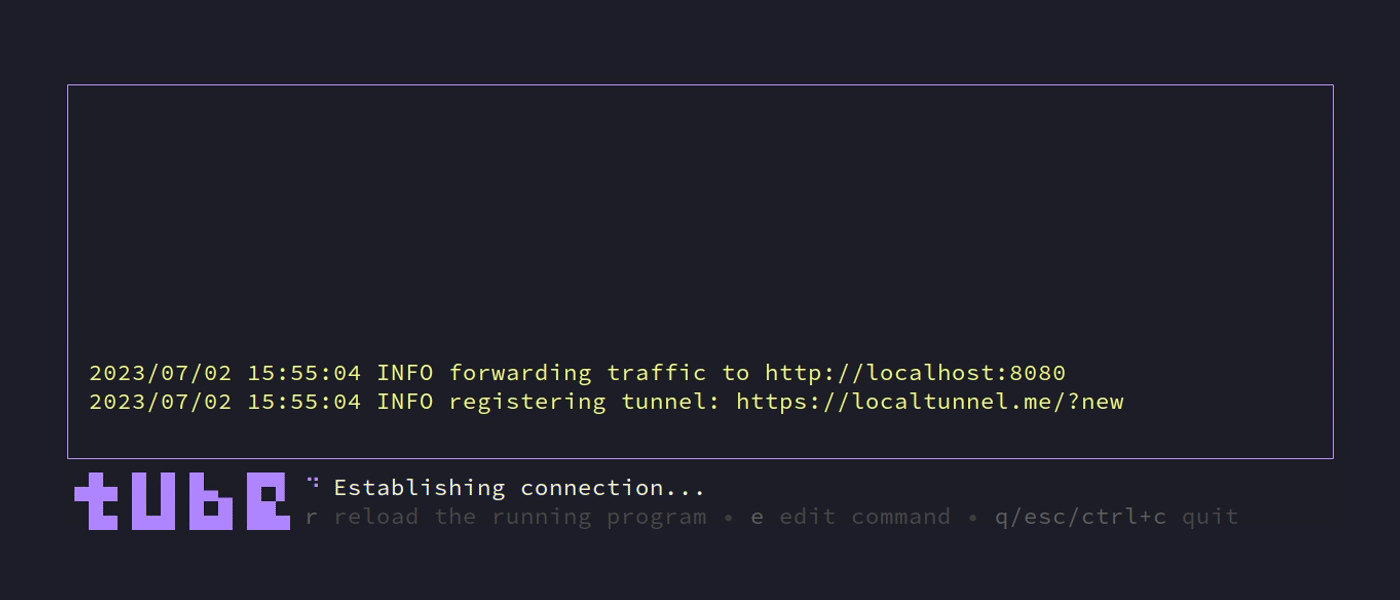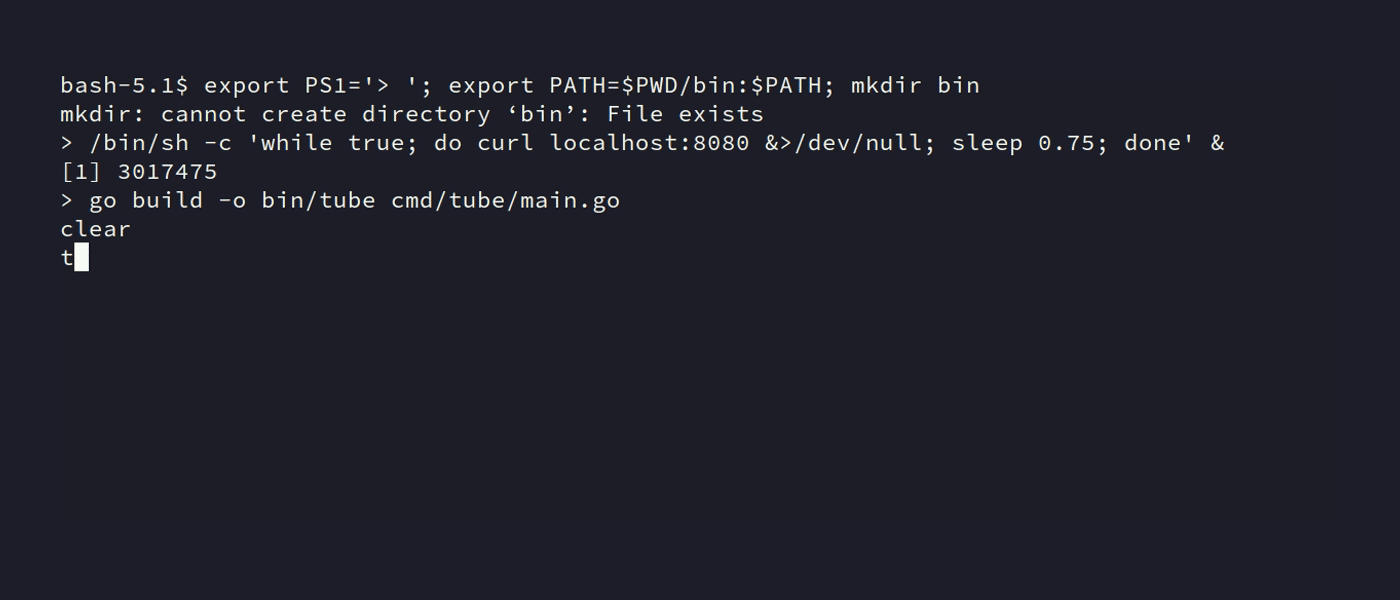Tube is a Localtunnel client. It uses the go-localtunnel client library to establish a connection and expose a local port externally.
It can spawn a command which the tunnel will use, show its output, and reload it on-demand, or watch for changes using fsnotify, and automatically reload it.
Download the binary from the releases page. Or run
go install github.com/ivanvc/tube/cmd/tube@latestTo start a tunnel, run:
tube [options] [local port] [command to execute]The command to execute is optional, if specified will spawn the command, and will show the output in the terminal output.
You can speficy any of the options by arguments to the program, or by an
environment variable, run tube -h to see all of the available options. The
port and command to execute can also be set from environment variables, by using
TUBE_PORT and TUBE_EXEC_COMMAND.
If you specify either -watch or the environment variable TUBE_WATCH=1, it
will watch for file changes in the current working directory using fsnotify.
Then, it will reload the exec command if specified.
The default execution type has a terminal user interface (made with the
Bubble Tea framework). You can edit the command by typing e, and manually
reload with r.
It's also possible to run in standalone mode (using -standalone or by setting
TUBE_STANDALONE=1).
As the output of the executing program will be shown, if you want to see the
tunnel's URL, you can send either the SIGUSR1 or SIGUSR2 to tube (i.e.,
pkill -USR1 tube).
You can also manually reload the running command by sending SIGHUP to tube
(i.e., pkill -HUP tube).
See LICENSE © Ivan Valdes




